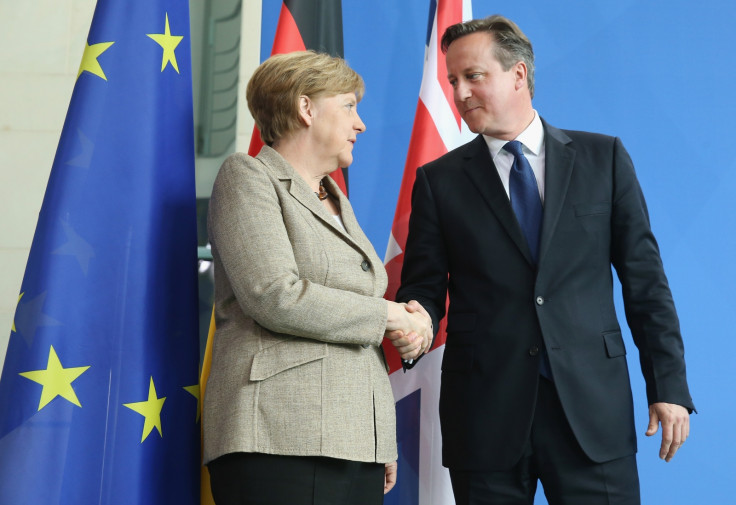EU referendum: Price tag of Brexit could be £100bn as trade deals become undone

Britain's referendum to leave the European Union is the equivalent of playing with economic fire and could cost the country more £100bn (€141bn) in trade deals, experts have said.
While leaving the 27-nation group would halt migration from the EU – which an increasing number of Tories say is adding drag to the UK economy – the country could stand to lose billions annually from scuttled international trade deals.
International trade lawyers say that if the UK withdraws from EU membership, it could lead to nullification of Britain's part in two of the union's biggest free trade agreements. Prime Minister David Cameron has pegged the referendum for 2017.
The UK "would need to negotiate a separate agreement" with both the US and Canada exclusive from the new and unratified Transatlantic Trade and Investment Partnership (TTIP) and Comprehensive Economic and Trade Agreement (CETA), according to Andrea Bjorklund, chair in International Arbitration and International Commercial Law at McGill University.
The deals between those countries and the EU are calculated to be annually worth £10bn and £1.3bn to UK GDP respectively — running to a value of more than £100 billion over ten years.
"The default," Bjorklund said, "would be that the agreement is between the EU and the US — and if Britain left the EU — the UK would be not be part of that unless both the US and EU agreed."
Under the Lisbon Treaty, any state wishing to leave the EU needs to give notice to the European Commission and then work out an agreement about the terms of withdrawal.
It took more than five years to negotiate the CETA agreement with Canada alone, and TTIP negotiations began in 2011.
Yet not only would it take years for the UK to reach new agreements, it is not as likely to strike a good deal. The "UK's bargaining position would be much weaker as it would be negotiating over access to its own market and not the EU internal market," according to John Van Reenen, director of the Centre for Economic Performance at the London School of Economics. Last year he co-authored a report titled Brexit or Fixit? The Trade and Welfare Effects of Leaving the European Union. "It's one of the many areas," he continued, "where people do not appreciate the economic benefits of being within a bigger bloc."
In consultations around the TTIP "it is felt in the UK, on balance, that it is more beneficial for the UK to negotiate as part of a bloc so as to obtain better leverage," agreed Sophie Nappert, the former head of International Arbitration at law firm Denton Wilde Sapte, now in independent practice.
Generally speaking the economic benefits of these agreements are likely to be significant, said Bjorklund, but not ground-breaking. They would streamline regulatory co-operation between nations, harmonising things such as food and product safety, financial services and regulatory oversight. The deals will also work to lower tariffs, and the agricultural sector is where new rules will have some the biggest impact.
Neither of the deals have been ratified yet, but a decision on whether to fast-track the US-EU agreement was derailed in congress on 12 June.
There has been popular pushback with protests across Europe, especially against the TTIP deal, and on 22 June NHS physicians also raised alarms that the deal could lead to backdoor privatisation of Britain's healthcare system. The deal is currently held up in European Parliament too after MEPs put forward 200 amendments to the deal on 9 June.
One of the Conservative Party's fiercest critics of continued EU membership, MP Owen Paterson, did not return a request for comment. But on 24 Nov 2014 he called for Britain to negotiate a free trade agreement with the EU once it had extracted itself from the union.
Last November free market think-tank Civitas also published a report showing there is scant evidence that withdrawing from the EU would harm exports from the UK or foreign investment in the country.
However, Standard & Poor's issued its own warning on the issue 23 June. "We believe it could significantly dent the UK's current net trade surplus in insurance and financial services," said S&P credit analyst Frank Gill of the potential EU exit. In 2013 UK GDP stood at £1.7tn.
"It will be extremely difficult in a practical sense for the UK to maintain the benefits of these deals if it chooses to leave the union," said Bjorklund. "I would imagine [THE EU] would be very reluctant to let [the UK] keep its status in TTIP while simultaneously withdrawing from the EU."
© Copyright IBTimes 2025. All rights reserved.






















